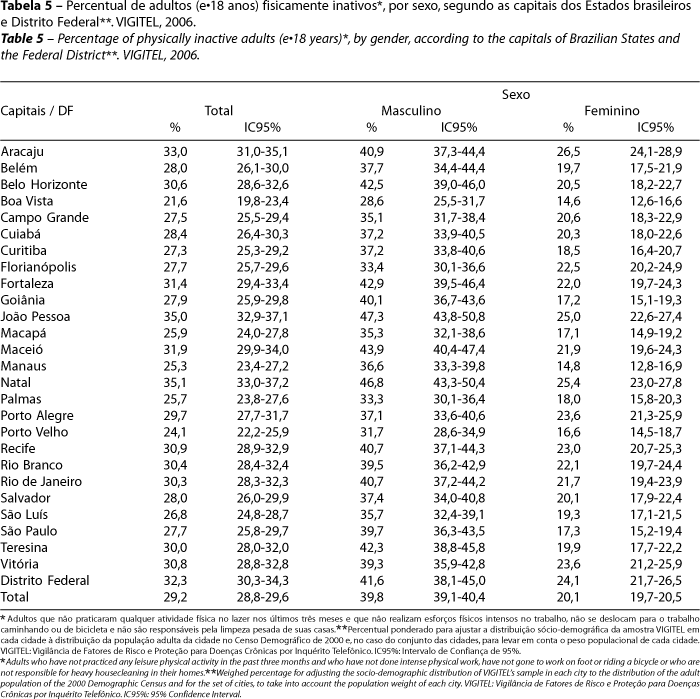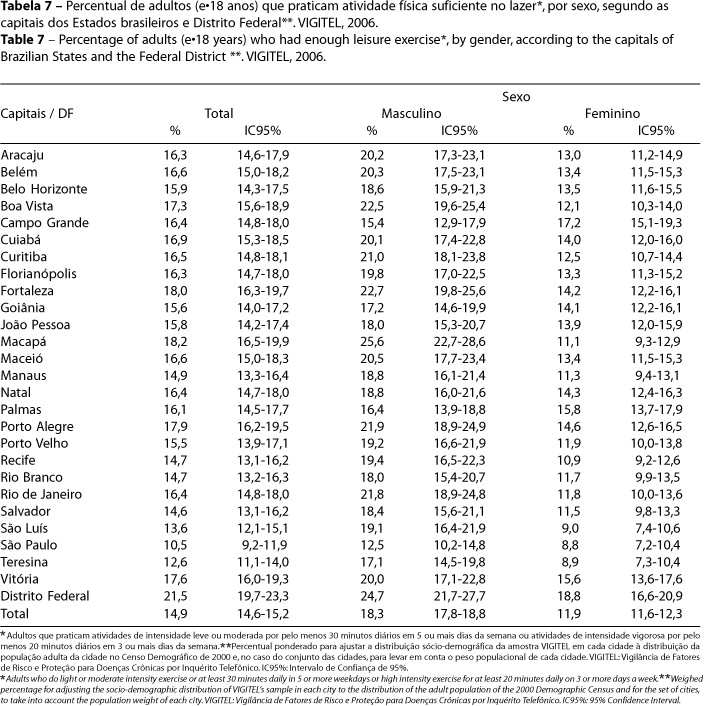OBJECTIVES: To describe methods and initial findings of the Surveillance System of Risk and Protective Factors for Chronic Non-Communicable Diseases through Telephone Interviews - VIGITEL implemented in Brazil in 2006. METHODS: VIGITEL studied random samples of individuals with 18 years of age or more living in households with telephones in each capital of the 26 Brazilian states and the Federal District (54,369 total individuals, and at least 2,000 per city). Sampling was based on complete electronic telephone directories in each city and included random selection of phone lines (households) and random selection of the household member to be interviewed. The questionnaire investigated demographic and socioeconomic characteristics, diet patterns, physical activity, smoking, consumption of alcoholic beverages, recalled weight and height, and other topics. Prevalence estimates of selected protective and risk factors, stratified by gender with corresponding 95% Confidence Intervals, were calculated for the adult population of each city using sample weighing factors designed to equalize the sample socio-demographic distribution in each city to the distribution observed in the same city in the Demographic Census of 2000. Estimates were also calculated for all cities together using additional sample weighing that took into account the adult population size of each city. FINDINGS: The five selected risk factors (smoking, excessive consumption of alcoholic beverages, overweight, habit of eating fatty meats, and physical inactivity) were more frequent among men than women. Among protective factors, the regular consumption of fruits and vegetables was more common among women than men and the opposite was seen for leisure-time physical activity. Strong differences among the cities were found for all protective and risk factors, with distinct patterns of regional distribution seen for different factors. DISCUSSION: The performance of the system, evaluated based on the quality of telephone directories and response and refusal rates, was appropriate and in general higher than the performance seen in similar systems of developed countries. The cost of R$ 31.15 per complete interview was half the cost of the Behavioral Risk-Factor Surveillance System and one fifth of the cost estimated for a household survey on risk factors for chronic diseases recently conducted in Brazil.
Non-communicable diseases; Adults; Telephone interviews; Food consumption; Physical activity; Smoking; Obesity; Socioeconomic status; Urban population; Brazil






